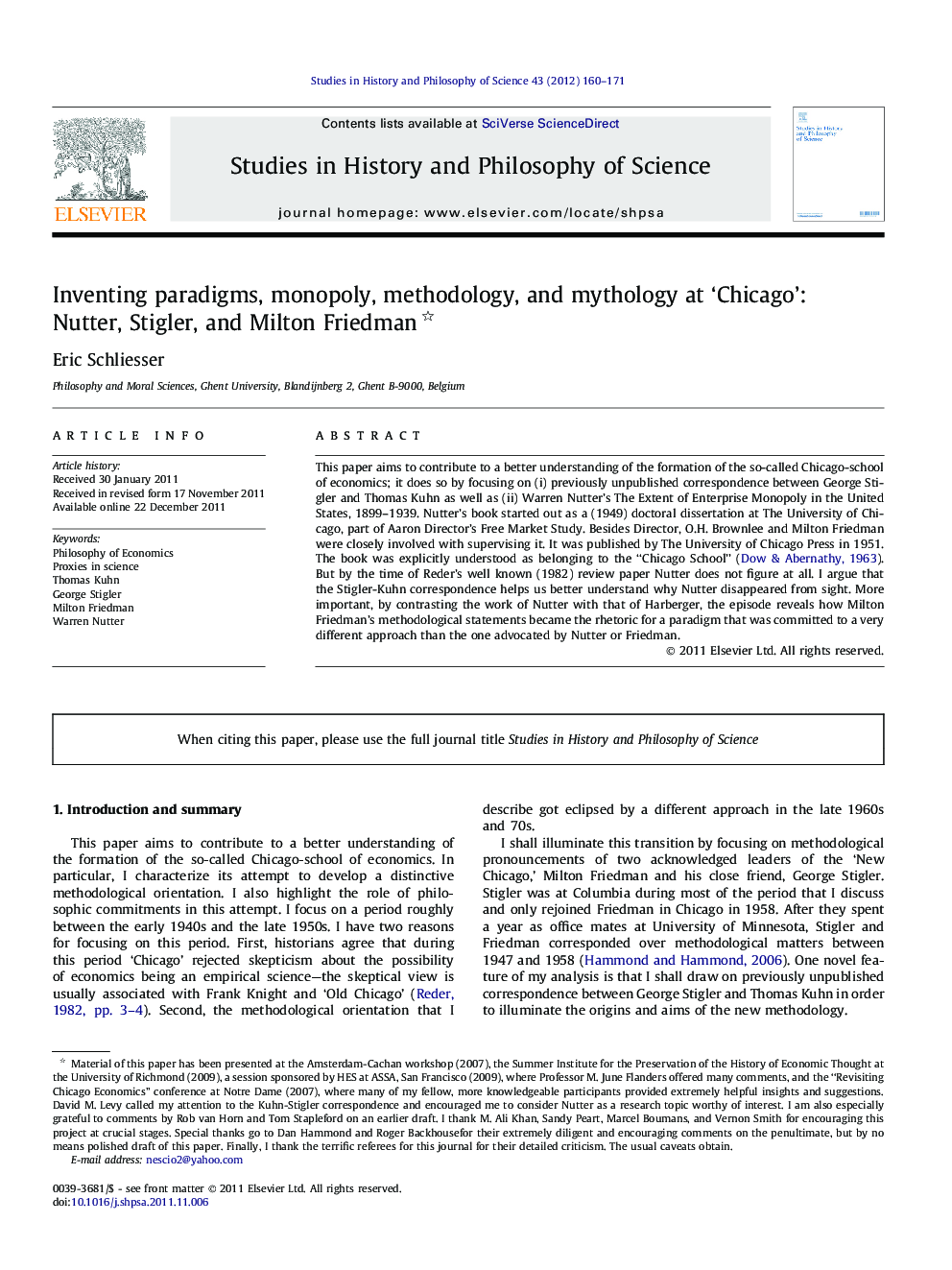| Article ID | Journal | Published Year | Pages | File Type |
|---|---|---|---|---|
| 1160356 | Studies in History and Philosophy of Science Part A | 2012 | 12 Pages |
This paper aims to contribute to a better understanding of the formation of the so-called Chicago-school of economics; it does so by focusing on (i) previously unpublished correspondence between George Stigler and Thomas Kuhn as well as (ii) Warren Nutter’s The Extent of Enterprise Monopoly in the United States, 1899–1939. Nutter’s book started out as a (1949) doctoral dissertation at The University of Chicago, part of Aaron Director’s Free Market Study. Besides Director, O.H. Brownlee and Milton Friedman were closely involved with supervising it. It was published by The University of Chicago Press in 1951. The book was explicitly understood as belonging to the “Chicago School” (Dow & Abernathy, 1963). But by the time of Reder’s well known (1982) review paper Nutter does not figure at all. I argue that the Stigler-Kuhn correspondence helps us better understand why Nutter disappeared from sight. More important, by contrasting the work of Nutter with that of Harberger, the episode reveals how Milton Friedman’s methodological statements became the rhetoric for a paradigm that was committed to a very different approach than the one advocated by Nutter or Friedman.
► The first extended discussion of the George Stigler–Thomas Kuhn correspondence. ► The first treatment of G. Warren Nutter’s economic methodology. ► Explains the nature of Friedman’s methodology in historical context. ► Explains how Kuhnian views were used to create a shared understanding for Chicago economics.
